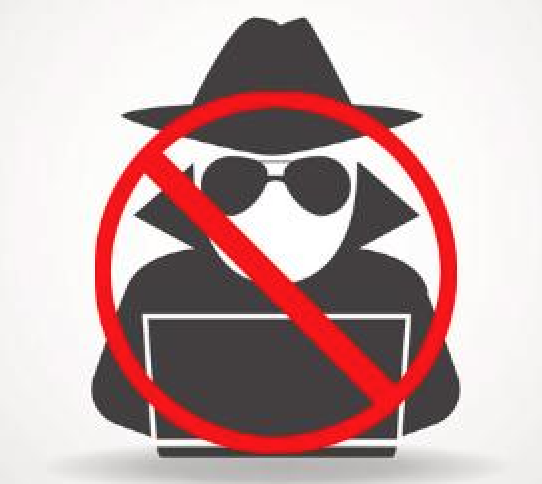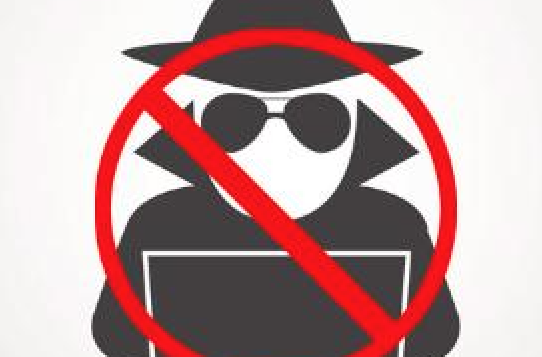“THE LEVEL of adulation for you on your Facebook page has gone up a lot lately. Have you noticed that?” a friend of mine recently messaged me. “Absolutely,” I replied. “It’s because I’ve blocked anyone who disagrees.” Hey, at least I’m honest.
Facebook is a bit of a fantasy playground anyway—let’s face it, the vast majority of these “friends” won’t be there for you when you really need them—so I’ve long felt that I should weed my page at will to make it my ultimate fantasy: a dizzying circle jerk without fear of putdown or repudiation. There are enough challenges in the real world and enough people to tell you “No” or “You’re wrong” to your face, so why not turn your social networking venue into a tightly enforced ego boost that will quiet the low self-esteem voice in your head while stroking you as a legend who’s always right about every little thing? It’s a new, self-aggrandizing twist on “Get off my lawn!” though the banish-ees don’t see it coming and usually don’t even realize they’ve been blocked for some time, so what’s the harm?
The weird aspect of this censoring reflex is that, as I’ve written before, we depend on interaction to be buoyed, educated, and charged. We need to communicate to feel less isolated and get over our trepidations about being a minority and potential outcasts. Without my years of club-going with other lgbtq’s, I wouldn’t have felt nearly as connected to the community, and I didn’t even used to totally mind the annoying people that filled out the crowd. I devoted some of my old Village Voice columns to “The 10 Biggest Nightmares in NYC Nightlife” in all their fabulous horror. But now I was running from anyone that seemed loony—including some gays—rather than examining their damaged edge or trying to get a kick out of their otherness.
 Adding more barriers is the fact that Covid-era restrictions have taken away a lot of old-style interaction and moved contact even more to our gadgets than we’d already been heading—and we’re still blocking people from putting in their two cents. We yell at right-wingers to read more than one source and to go out there and listen and learn, but at the same time, we close our eyes and ears to anyone we don’t like. On Facebook and Twitter, we have made ourselves as much of a locked-in community as the Christian Right. And I have to admit that I’m not changing my ways about this at all.
Adding more barriers is the fact that Covid-era restrictions have taken away a lot of old-style interaction and moved contact even more to our gadgets than we’d already been heading—and we’re still blocking people from putting in their two cents. We yell at right-wingers to read more than one source and to go out there and listen and learn, but at the same time, we close our eyes and ears to anyone we don’t like. On Facebook and Twitter, we have made ourselves as much of a locked-in community as the Christian Right. And I have to admit that I’m not changing my ways about this at all.
In a way, it’s a matter of using whatever power we have left to feel like doormen at a private VIP club, but it’s more than just a grab for glory; I’ve continually found the “blocking” mechanism to be a welcome sanity saver. Few of us have the patience anymore to argue with homophobes, racists, and apologists. We know that they’re not going to change their minds, because they have a natural bent to bigotry and selectively use both propaganda and the Bible to bash us. And when they come at us with screaming bile that obviously can’t be true, my most sensible answer has been to hold up my hand, make a face, and pretend they don’t exist. The urge to change every mind on the planet can be extremely time-consuming (and it doesn’t pay), so I’ve decided to not change any, thank you—just to throw some shade, then righteously slam the door shut.
In October, I blocked someone who was sharing fake videos of Hunter Biden doing made-up scandalous things. (No, it wasn’t Rudy Giuliani, but it might as well have been.) You can report these people, but certainly not encourage them! I also built a wall against the Bernie lovers who were blindly claiming that there’s virtually no difference between Joe Biden and Donald Trump. I would lay out the vast differences between the two candidates for them, then add: “Bernie is enthusiastically backing Biden at this point. Why do you hang on everything he says except that?” And then came the block!
For equal time, I’ll also hold a “Stop” sign up to any self-loathing gay Republican who crows, “I don’t just vote with my sexuality.” “Yeah,” I’ve replied, “You’re a racist too. And please stop bragging about the economy. Obama had to rescue the economy from a disastrous Republican one, and while the stock market is up under Trump, have you heard about the massive unemployment numbers, tumbling real estate values, and plummeting interest rates on investments? It’s possible to have a good economy plus queer rights—our leadership can multitask—but under Trump, we have neither.” Block! Anyone who promotes conspiracy theories or fake information about Covid is also aggressively unwelcomed from my pages on Facebook, Twitter, and Instagram, and that’s not about my ego at all; it’s a precaution to make sure their dangerous baloney doesn’t reach even my fake friends.
As a result of all this blocking, my pages have become an exercise in preaching to the converted, with everyone shouting “Hallelujah!” and agreeing with me with a fervor that I can always turn to in order to feel appreciated. The lift I get feels a little hollow, but it’s still reliably gratifying—and I’ve become a real maestro in orchestrating all of this. I generally will tell any offending person off, summoning my best impersonation of Dixie Carter doing her “The Night the Lights Went Out in Georgia” monologue from Designing Women, and then I’ll wait a couple of minutes, figuring they’ll read what I said. Then I block them, so they can’t reply to my reply, and I’ve had the triumphant last word. Victory!
On Facebook, shockingly enough, I blocked my own godson during the last election race. I was stunned to learn that he is a right-winger who continually posts smear campaigns against the Democrats, shamelessly echoing propaganda from shady websites. As I happen to have inside knowledge of this guy’s own personal behavior, I know he has no right to smear anyone else’s, especially with lies. But now comes the pressing question: having blocked my own godson, do I still send him a birthday card every year?
At least I don’t threaten the blocking, I just do it. One of the most tiresome phenomena on Facebook consists of people screeching things like: “If you are against lgbtq rights, i will unfriend and block you!!!” As if the masses are supposed to be quaking in their boots that they might be unfriended by someone they don’t know or care about and who they totally disagree with anyway. When someone offers a friend request, how about looking at their profile and their posts to see what they believe in, rather than accept them and later be forced to threaten banishment? I wouldn’t socialize with a small-minded bigot, so why should I converse with them in cyberspace? Alas, some “friends” that I’ve ended up blocking generally hid their leanings from me at first, or they later changed them, veering treacherously to the right, but it’s never too late to exclude. Bye, Felicia!
The result is cleansing and cathartic, and I won’t miss their warped spewing of misinformation while they scream “do your research.” Those are the ones who are usually the worst of all because they haven’t done any research themselves. They parrot falsehoods about how Republicans love lgbtq’s without doing a mere Google search about how they have brazenly tried to strip away our rights, one by one. Again, later!
Nobly enough, I do allow in some people who at times have different opinions than mine, because they approach me respectfully—not with capital letters and name-calling—and besides, they have a point. I would never block people like gay commentator Andy Humm, because he’s stimulating and alerts me to angles I hadn’t thought of. (For example, I assumed that Pope Francis’ pro-same-sex civil union stance was a step forward, but Humm posted: “It is nothing but a reiteration of his old position that if there has to be some kind of civil legal recognition of same-sex couples, let it not be marriage.” He added: “Don’t try it if you work for a Catholic institution. You will be fired.”)
And so, I weed judiciously, to allow the chance for some reasoned attempts at education to sneak in. The good part about weeding your page is that in removing people—or fake accounts—with nothing positive to offer, you can still be left with some valuable insights, not just stroking. So I will continue blocking away, even if it’s the equivalent of plugging my ears with my fingers and humming to drown out the noise. And since November, I’ve had a whole new parting message to these intrusive miscreants: “I don’t have to argue with you people anymore. We won!” And then, block!
Michael Musto is a longtime columnist and commentator who has written four books, including Downtown (1986) and Fork on the Left, Knife in the Back (2014).






